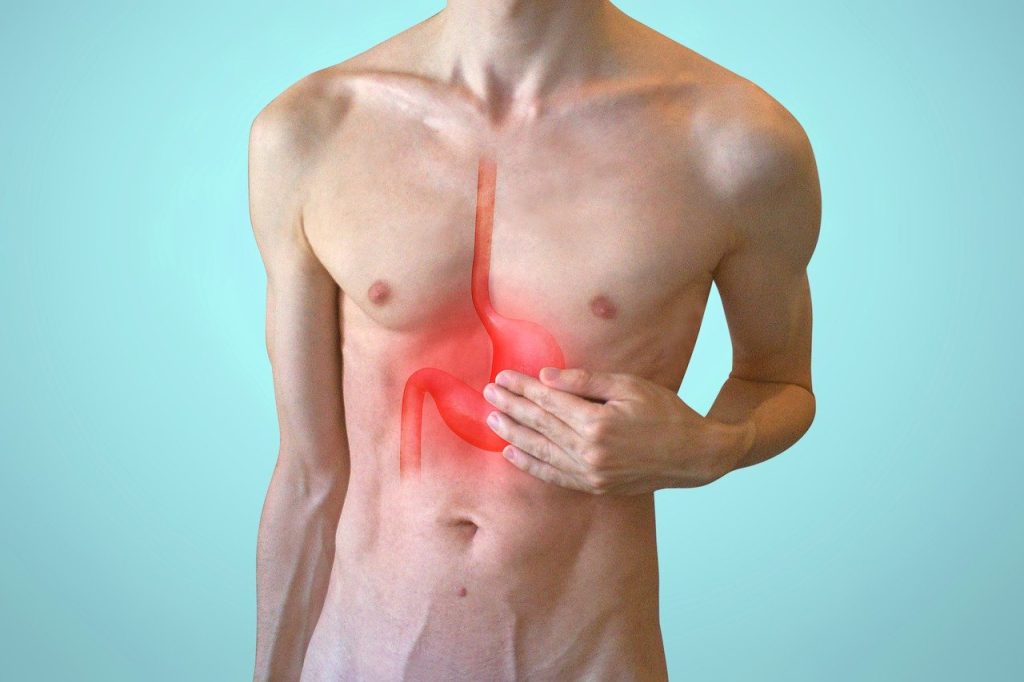Healthy Strategies for Fast Relief from Gastritis Pain at Home

Gastritis is a common digestive disorder that can cause inflammation and irritation of the stomach lining. It's an uncomfortable condition that can lead to pain, discomfort, and other digestive symptoms. While there's no one-size-fits-all remedy for gastritis, there are many healthy strategies for managing gastritis pain at home. In this article, we'll discuss the causes, symptoms, and diagnosis of gastritis, as well as the best strategies for fast relief from gastritis pain.
Introduction to Gastritis
Gastritis is an inflammation of the stomach lining that can be caused by a variety of factors, including bacterial infections, certain medications, or chronic alcohol use. In some cases, gastritis can be caused by stress or autoimmune reactions. It's a common condition that affects millions of people around the world.
Gastritis can cause a wide range of symptoms, including abdominal pain, nausea, vomiting, bloating, and loss of appetite. In severe cases, it can also lead to bleeding in the stomach or intestines, which can be a serious medical emergency.
Symptoms of Gastritis
The most common symptom of gastritis is abdominal pain or burning. This pain can be localized to a specific area or can be more generalized. Other symptoms of gastritis include nausea, vomiting, loss of appetite, bloating, and belching. In severe cases, blood in the stool or dark, tarry stools may be present.
Causes of Gastritis
There are many potential causes of gastritis, including bacterial infections, certain medications, alcohol use, and autoimmune reactions. Bacterial infections, such as Helicobacter pylori, are the most common cause of gastritis. Certain medications, such as non-steroidal anti-inflammatory drugs (NSAIDs), can also cause gastritis. Chronic alcohol use can also irritate the stomach lining, leading to gastritis. In some cases, stress can trigger an autoimmune reaction that leads to gastritis.
Diagnosing Gastritis
If you think you may have gastritis, it's important to see your doctor for diagnosis and treatment. Your doctor will likely order a blood test to look for signs of infection or inflammation. They may also order a stool sample to look for blood in the stool. Additionally, your doctor may order an endoscopy to get a closer look at the stomach lining.
Eating Right for Gastritis Relief
The first step in managing gastritis is to focus on eating the right foods. Eating nutritious, whole foods can help reduce inflammation and irritation of the stomach lining. It's important to avoid processed and refined foods, as well as foods that are high in fat or sugar. Eating smaller, more frequent meals can also help reduce symptoms.
In addition to eating healthy, avoiding certain foods can help reduce symptoms. Avoiding alcohol, spicy foods, and acidic foods can all help reduce gastritis pain. Eating foods that are easy to digest, such as oatmeal, bananas, and applesauce, can also help reduce symptoms.
Natural Remedies for Gastritis
In addition to eating the right foods, there are several natural remedies that can help reduce gastritis pain. Probiotics, such as yogurt and kefir, can help restore the balance of good bacteria in the gut, which can help reduce inflammation and irritation. Ginger can also help reduce inflammation and reduce nausea. Herbal teas, such as chamomile and peppermint, can also help soothe the stomach.
Exercise and Stress Management for Gastritis
Exercise and stress management are important for managing gastritis. Regular exercise can help reduce stress, improve digestion, and reduce inflammation. It's important to find an exercise routine that is comfortable and enjoyable. Gentle activities such as walking, yoga, and tai chi can be particularly helpful.
Stress management is also important for managing gastritis. Stress can worsen symptoms, so it's important to find ways to manage stress. Meditation, deep breathing, and journaling are all helpful stress-reduction techniques.
Medications and Supplements for Gastritis
If natural remedies and lifestyle changes don't help reduce symptoms, your doctor may prescribe medications or supplements to help manage gastritis. Antacids and proton pump inhibitors can help reduce stomach acid and reduce irritation. Your doctor may also prescribe antibiotics if you have a bacterial infection. Additionally, certain supplements, such as glutamine, can help reduce inflammation and irritation.
Lifestyle Changes to Help Manage Gastritis
Making lifestyle changes can also help reduce gastritis pain. Avoiding alcohol and smoking can help reduce inflammation and irritation. It's also important to avoid acidic foods, such as citrus fruits, tomatoes, and vinegar. Additionally, it's important to get plenty of rest and avoid strenuous activities.
Conclusion
Gastritis is a common digestive disorder that can cause inflammation and irritation of the stomach lining. While there's no one-size-fits-all remedy for gastritis, there are many healthy strategies for managing gastritis pain at home. Eating the right foods, avoiding certain foods, exercising regularly, and managing stress can all help reduce symptoms. Additionally, medications and supplements can help reduce inflammation and irritation. If you think you may have gastritis, it's important to see your doctor for diagnosis and treatment. By following these strategies, you can get fast relief from gastritis pain at home.

Deja una respuesta